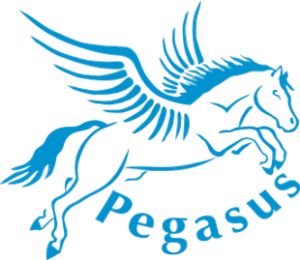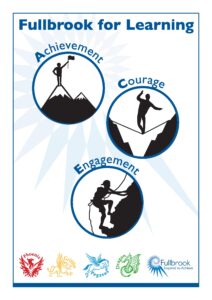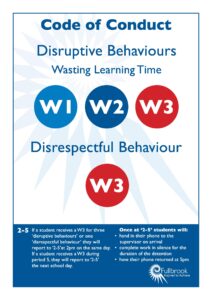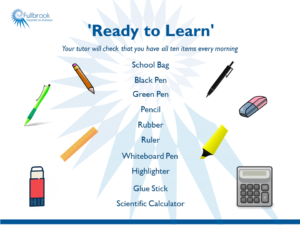March
The Local Education Authority will send confirmation to parents confirming their child’s place at secondary school. Fullbrook send enrolment log ins to parents.
June
Primary school pupil profiles are transferred to Fullbrook and tutor group lists are established. Head of Year 7 completes Year 6 Primary School visits to collect data and answer initial questions from Year 6 about the transition.
June/July
Transition days – Year 6 pupils visit Fullbrook for two days. They will experience an assembly at secondary school for the first time, meet the tutors, tour the school, attend some lessons, meet with some current Year 7 students and meet their Year 11 mentors.
Parent Information Evening – All Year 7 parents are invited to attend an evening event. Where they have the opportunity to learn more about the culture of Fullbrook and gain a deeper understanding of how the processes work.
Parents will receive practical information in preparation of starting secondary school.
July
Primary schools prepare pupils to change schools and families attend ‘leavers’ events.
September
SATs results are transferred to Fullbrook.
Year 7 have special arrangements at the start of the school year. On the first day of school there is a staggered start allowing Year 7 to start a little earlier than the rest of the school.
Lunch arrangements are adjusted in order to give Year 7 more time to eat for the first two weeks. Mentors take students from lesson to lesson for the first two weeks of term. Learning Support Assistants are allocated to a tutor group for the first two to three weeks and will go to every lesson with that tutor group.
Academic Profiling – this continues as other forms of data are gathered about the students and entered into the schools database. All teaching staff use this information in order to challenge students appropriately.
October
Students are no longer taught in tutor groups for English, Maths and Science but are grouped so that they are taught alongside other students of similar ability. This allows teachers to challenge students appropriately and target their individual needs.
Meet the Tutor Evening – An early opportunity for parents to meet with their child’s tutor and discuss how their child has coped with the transition.










